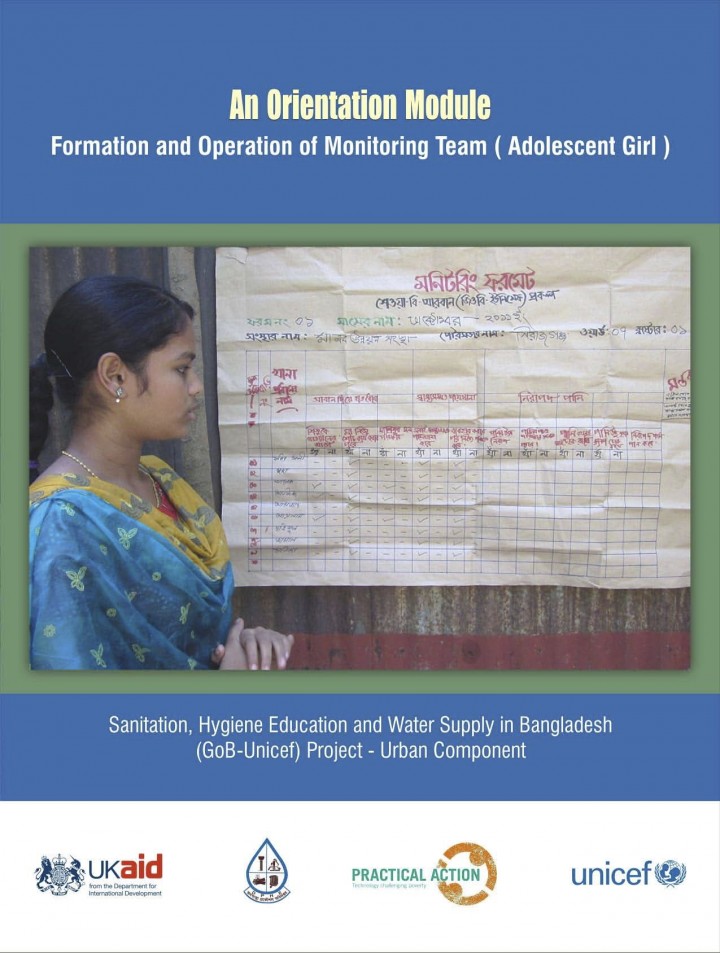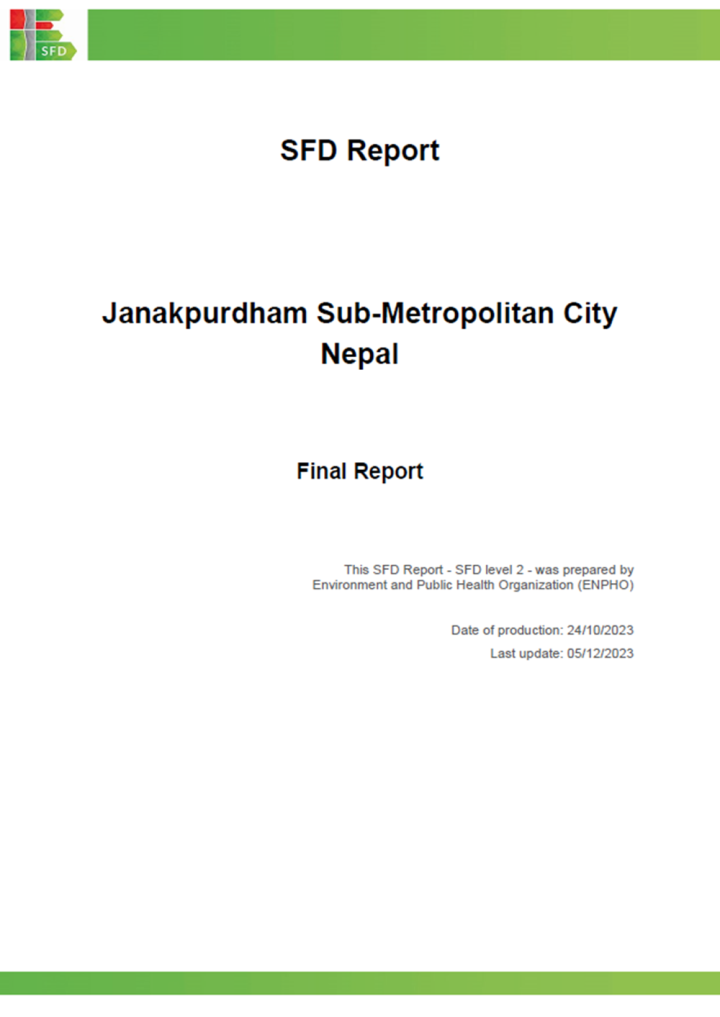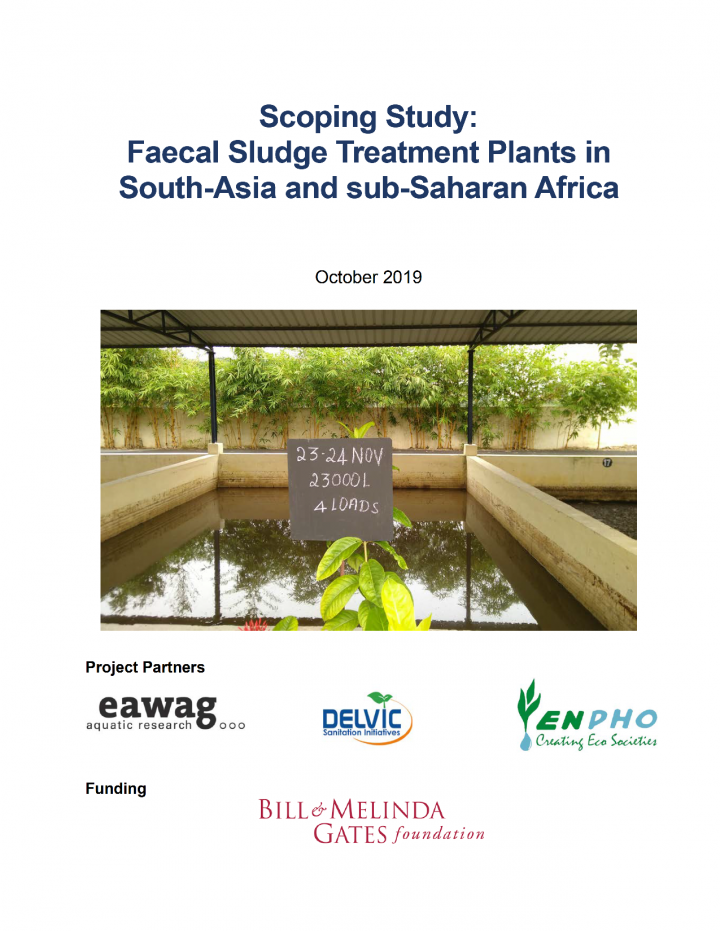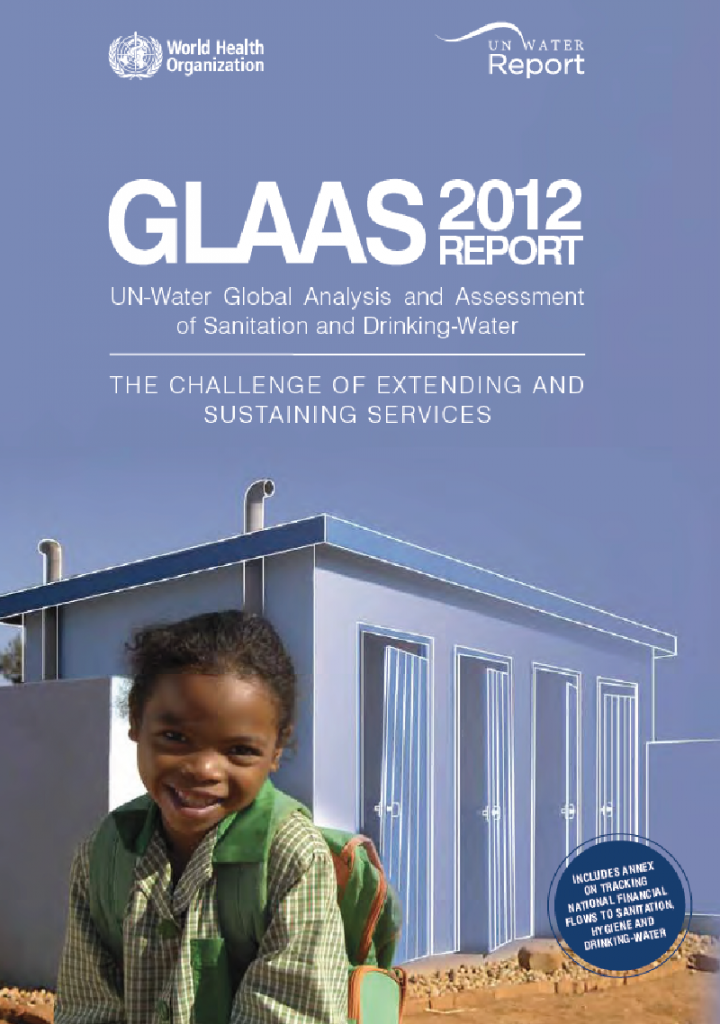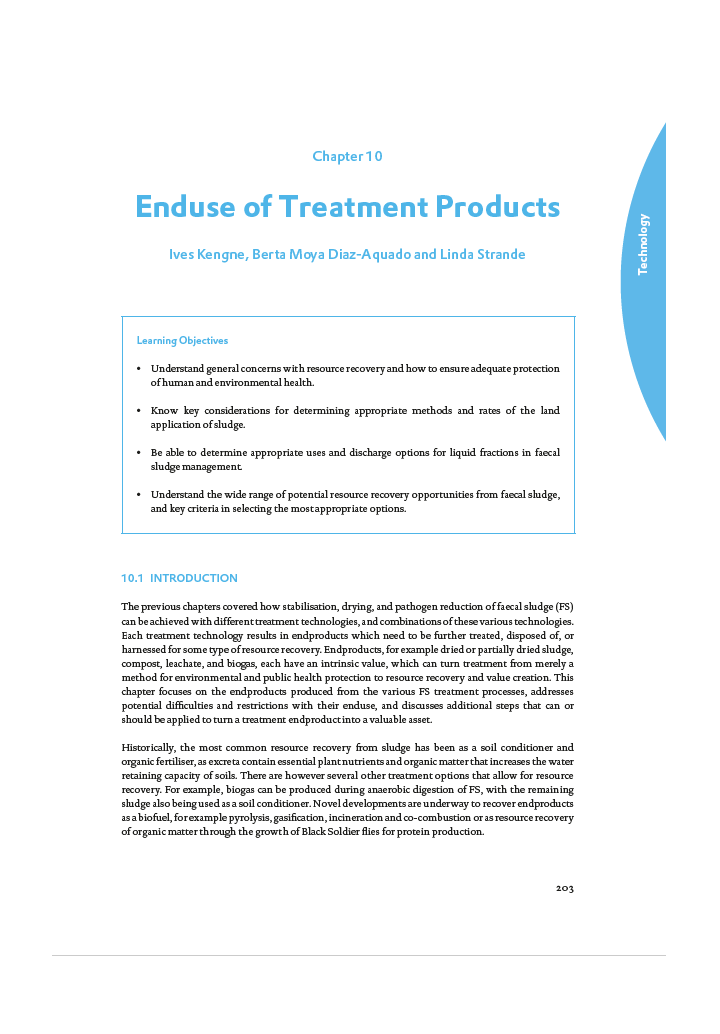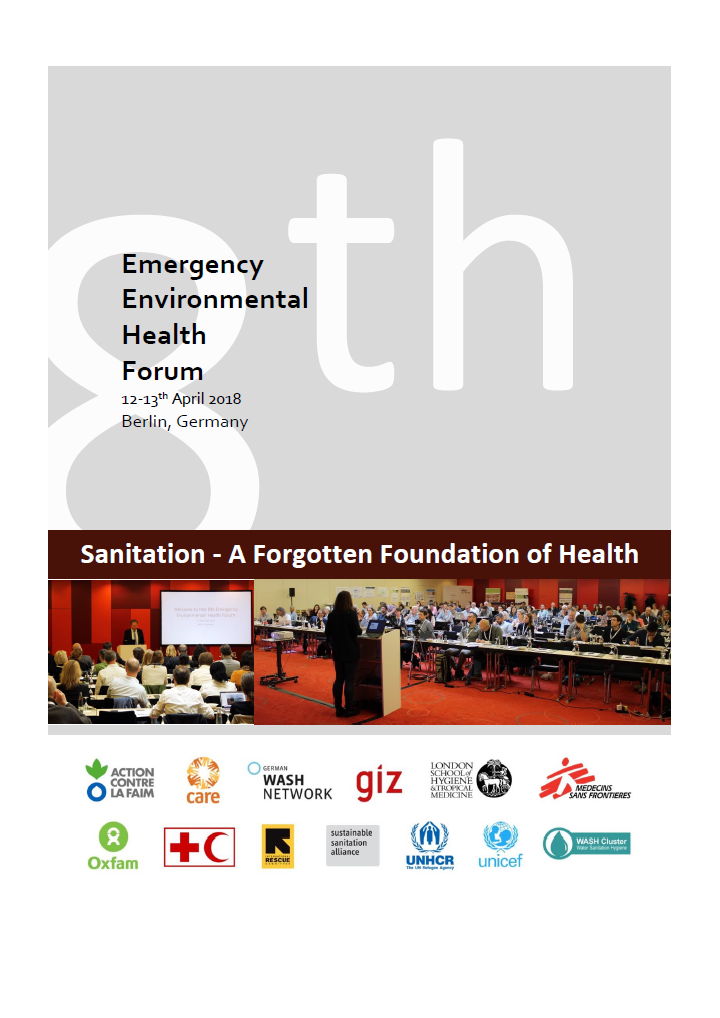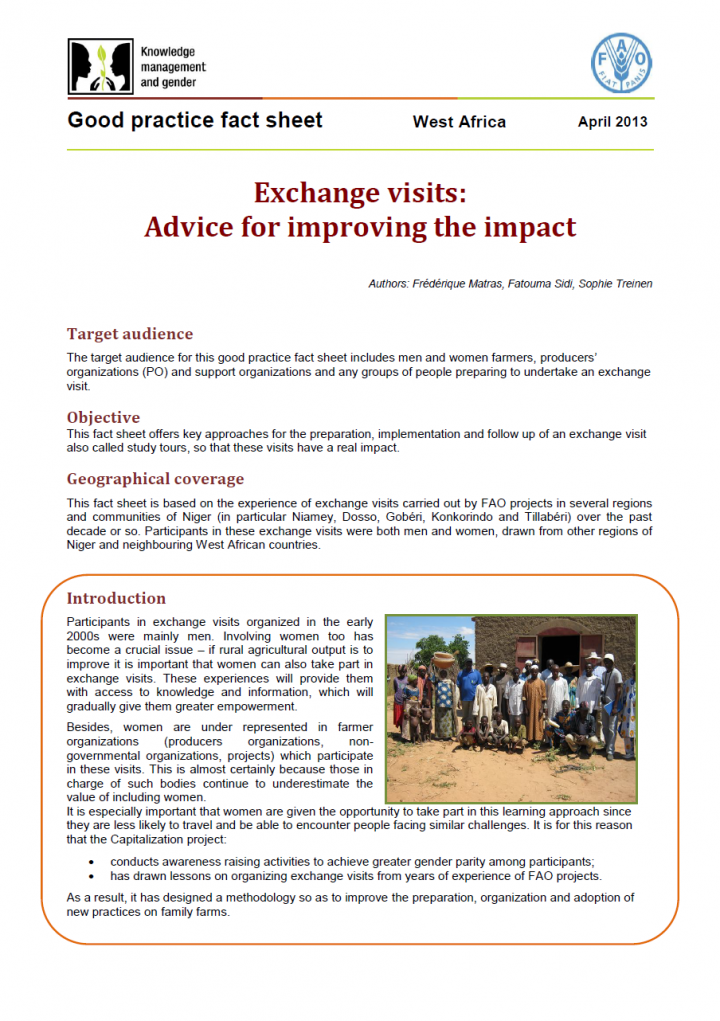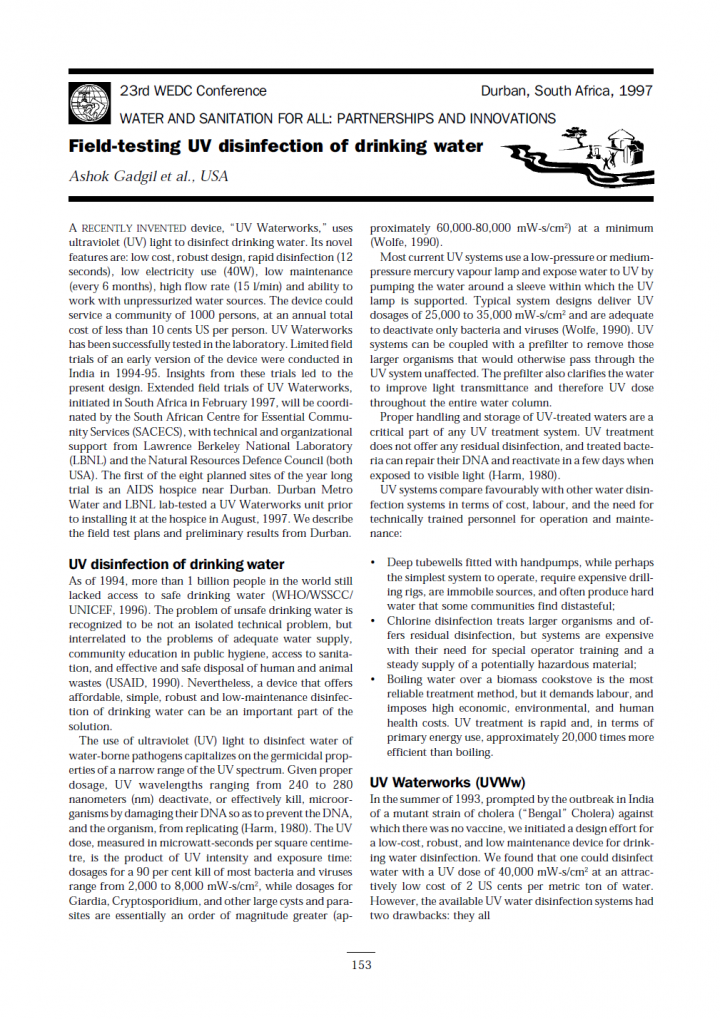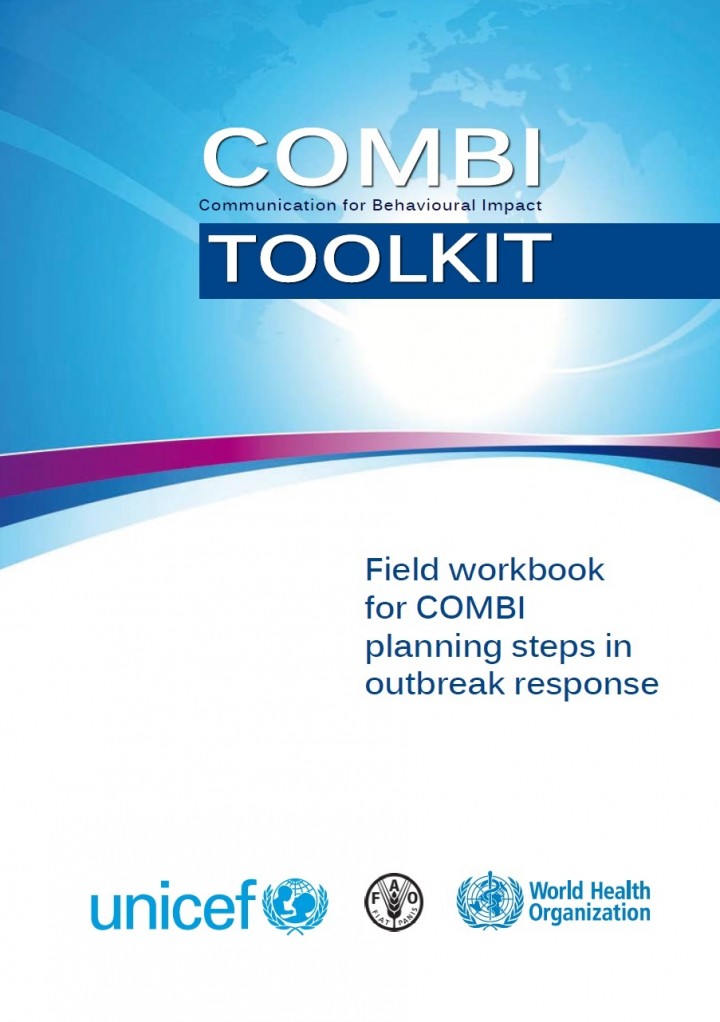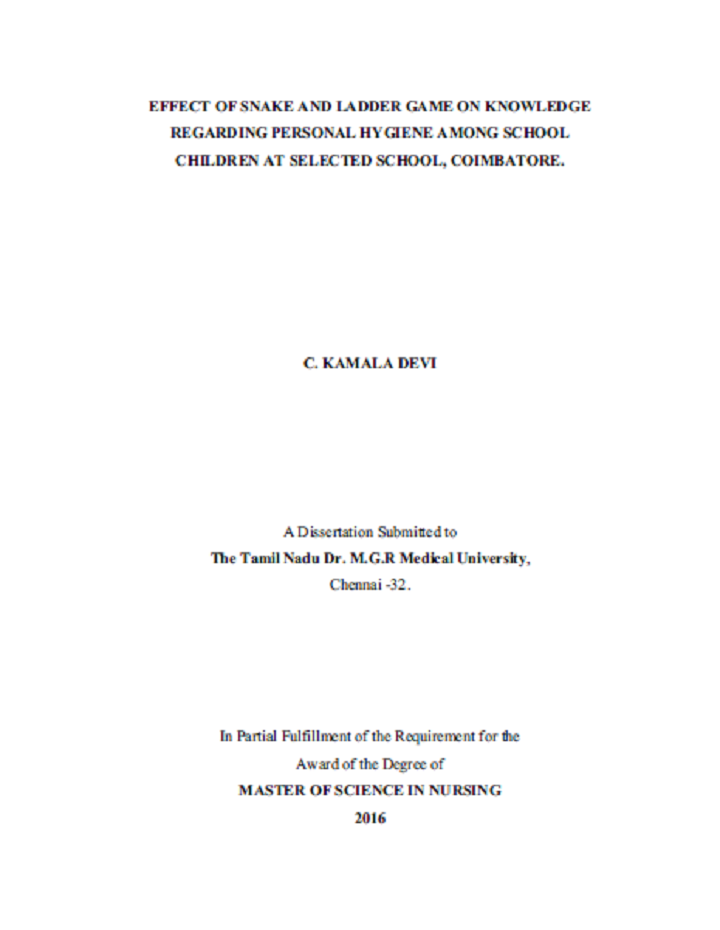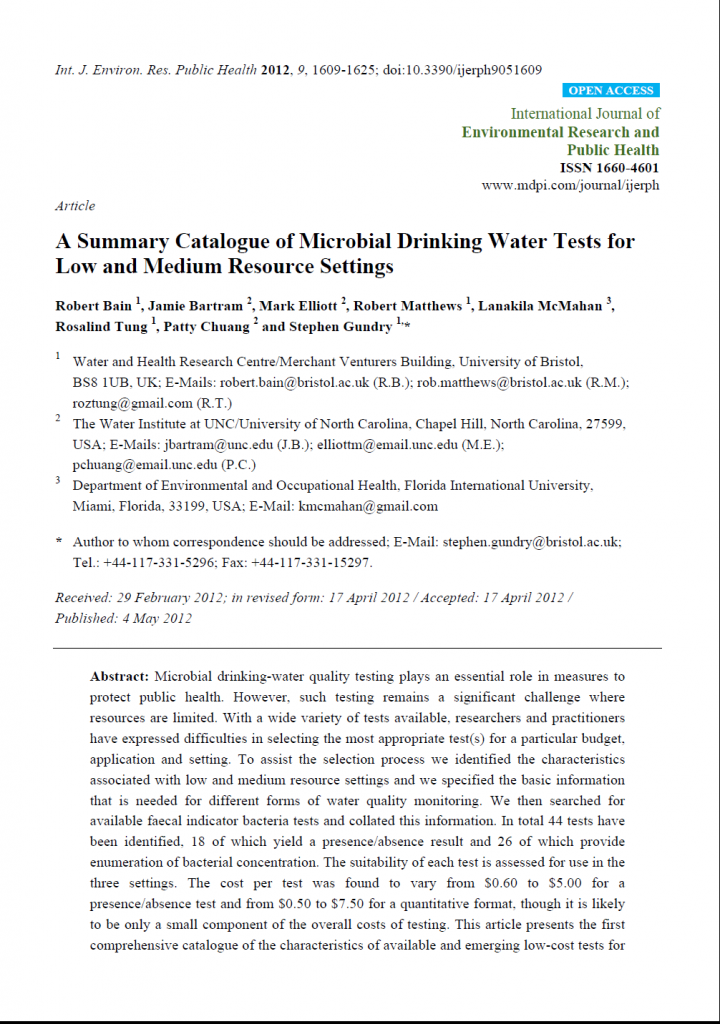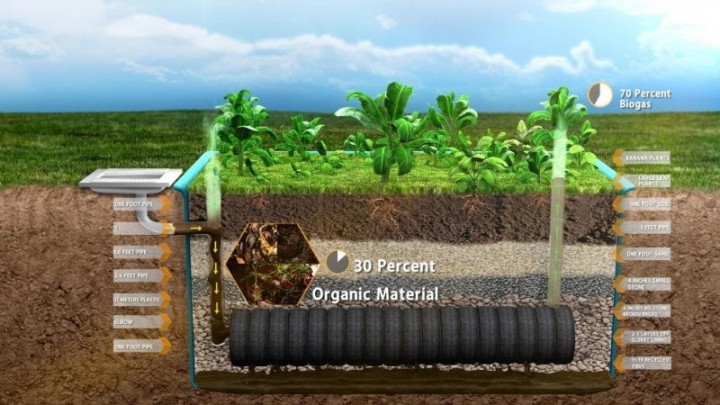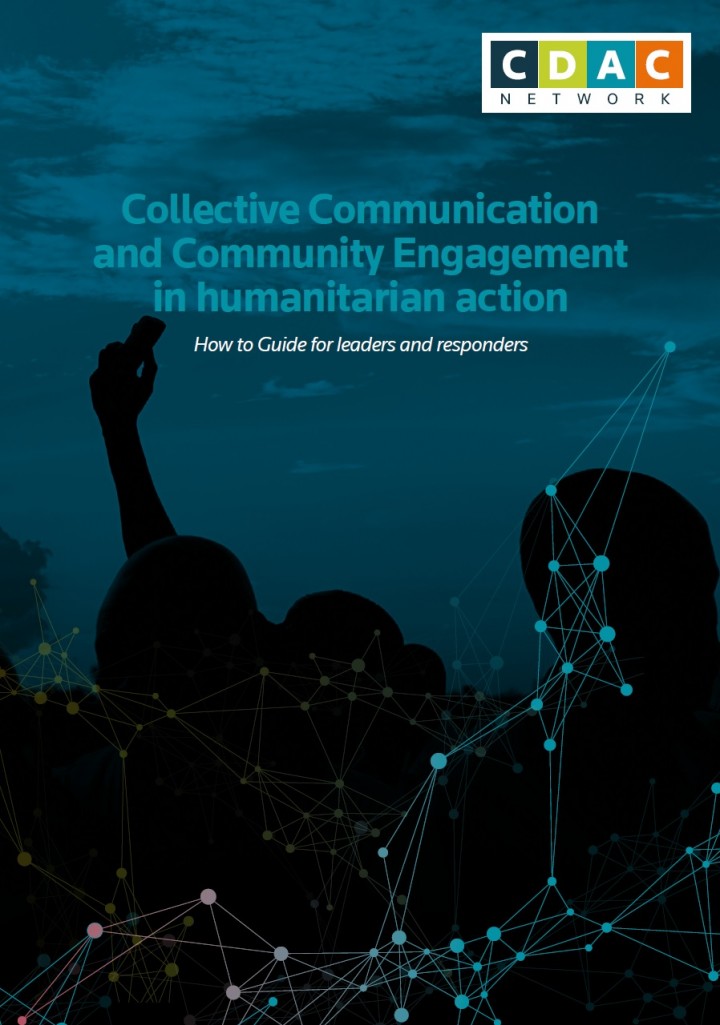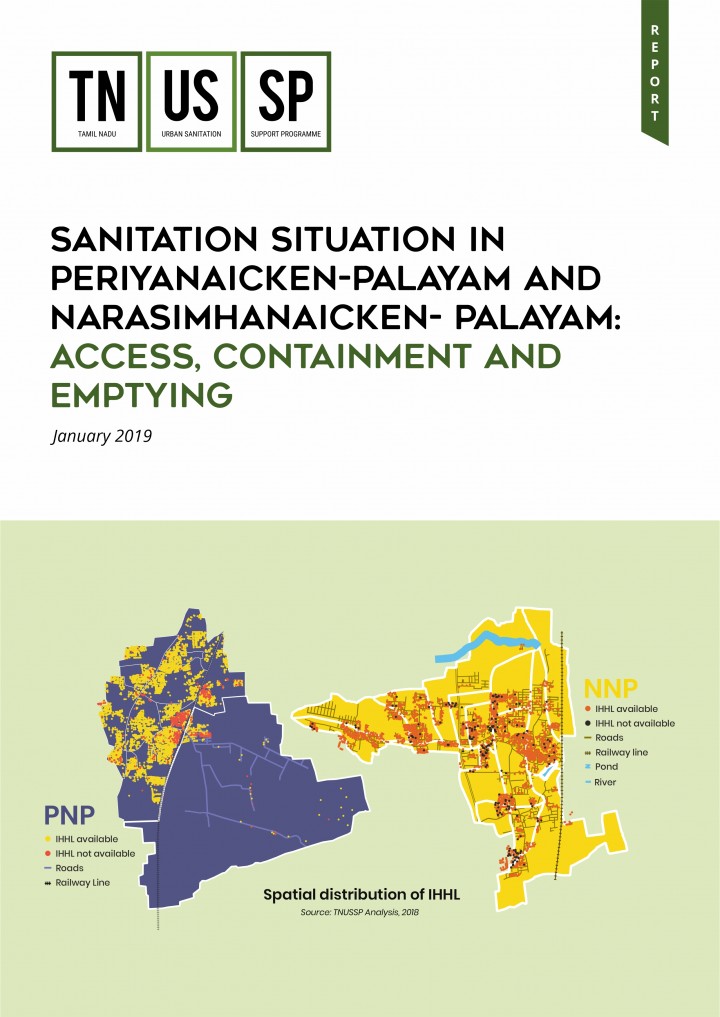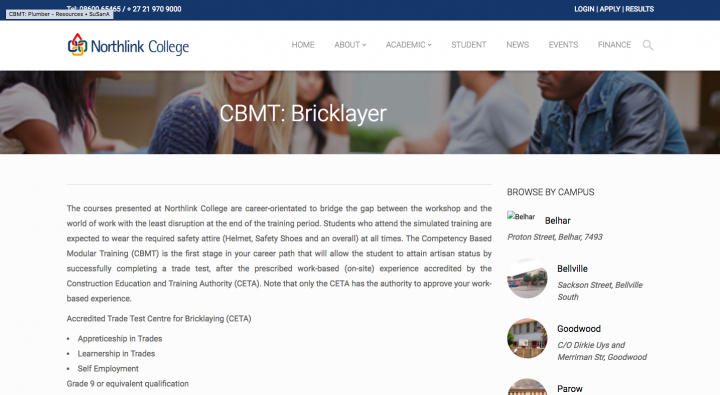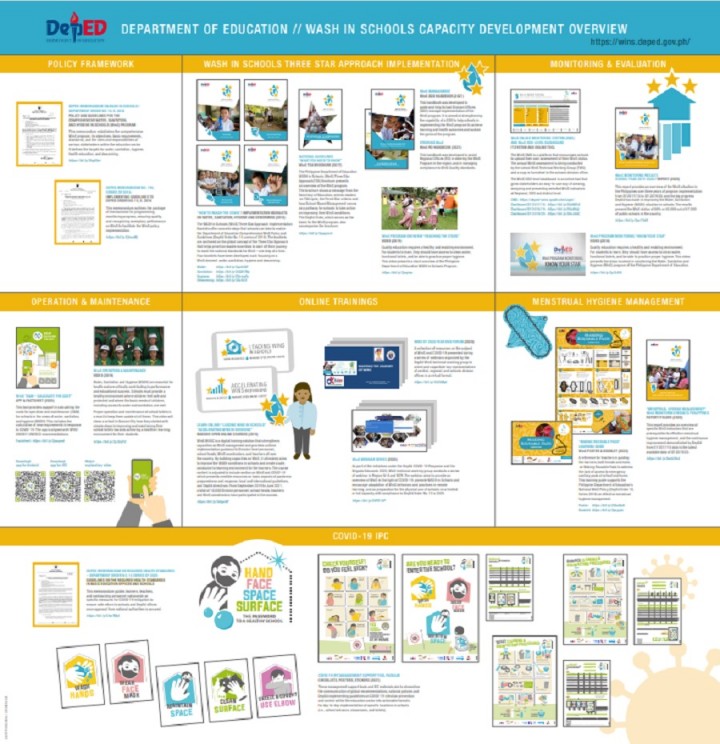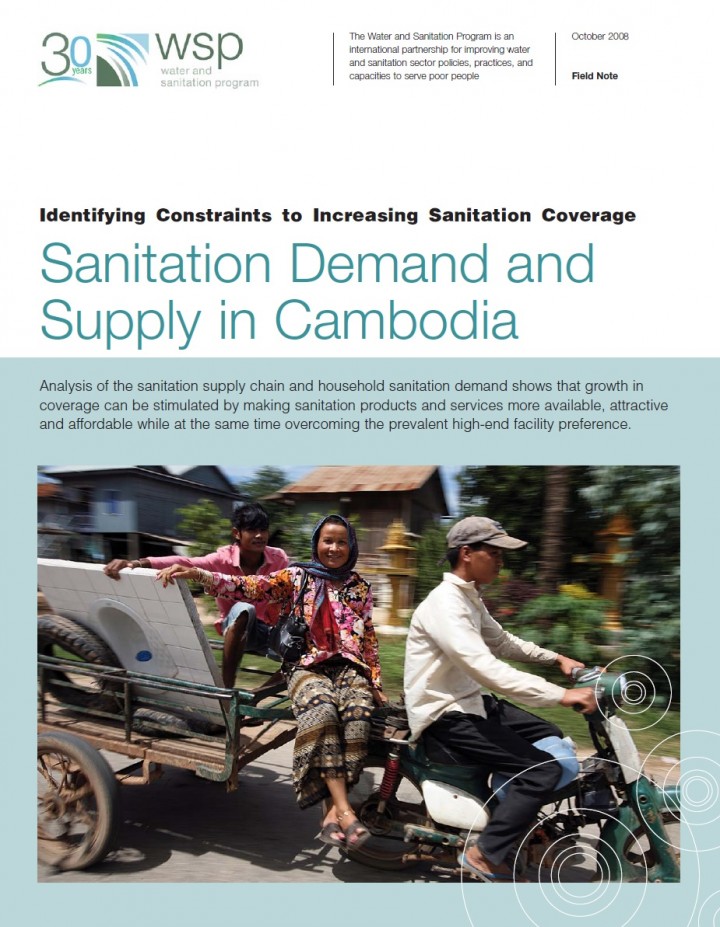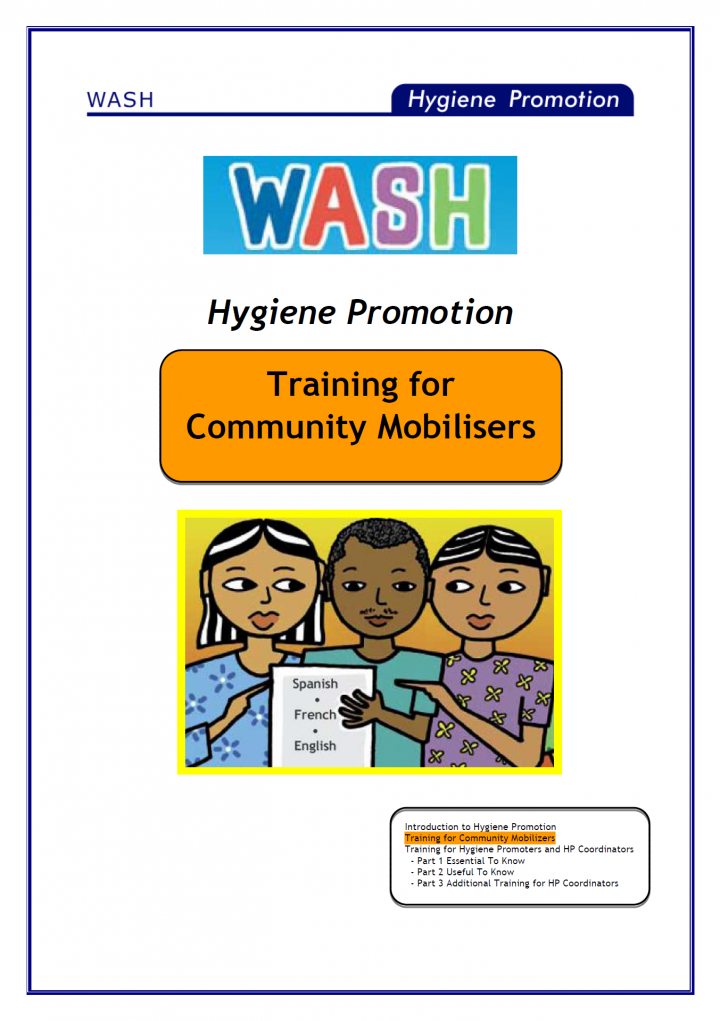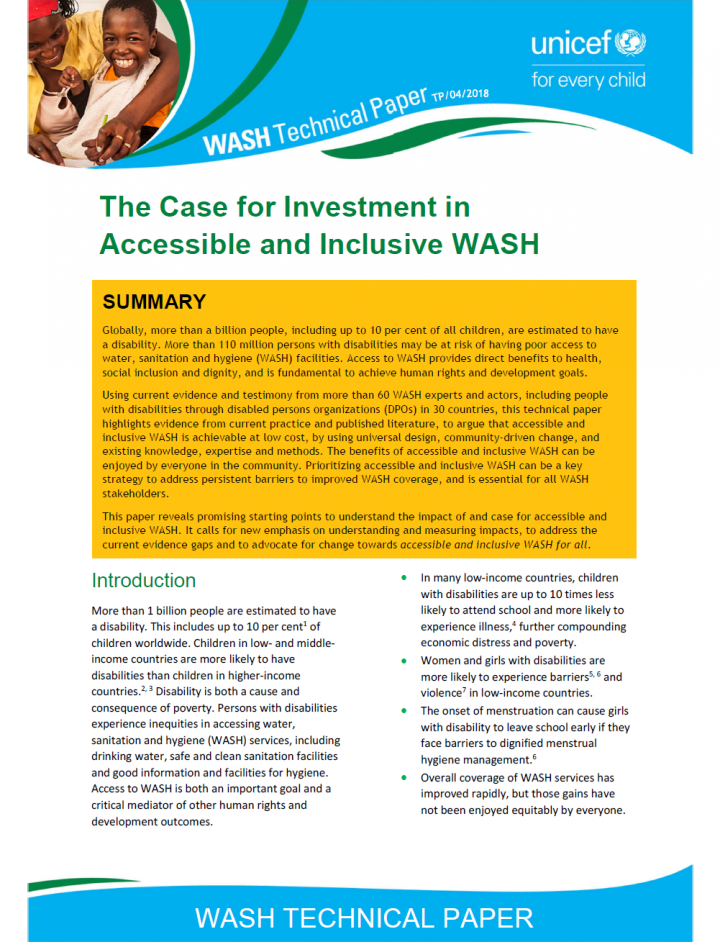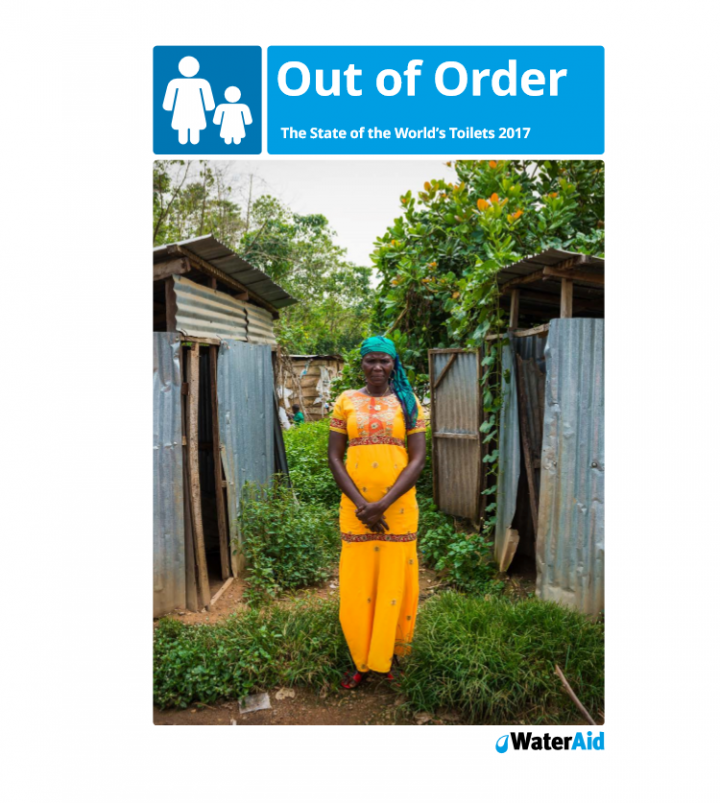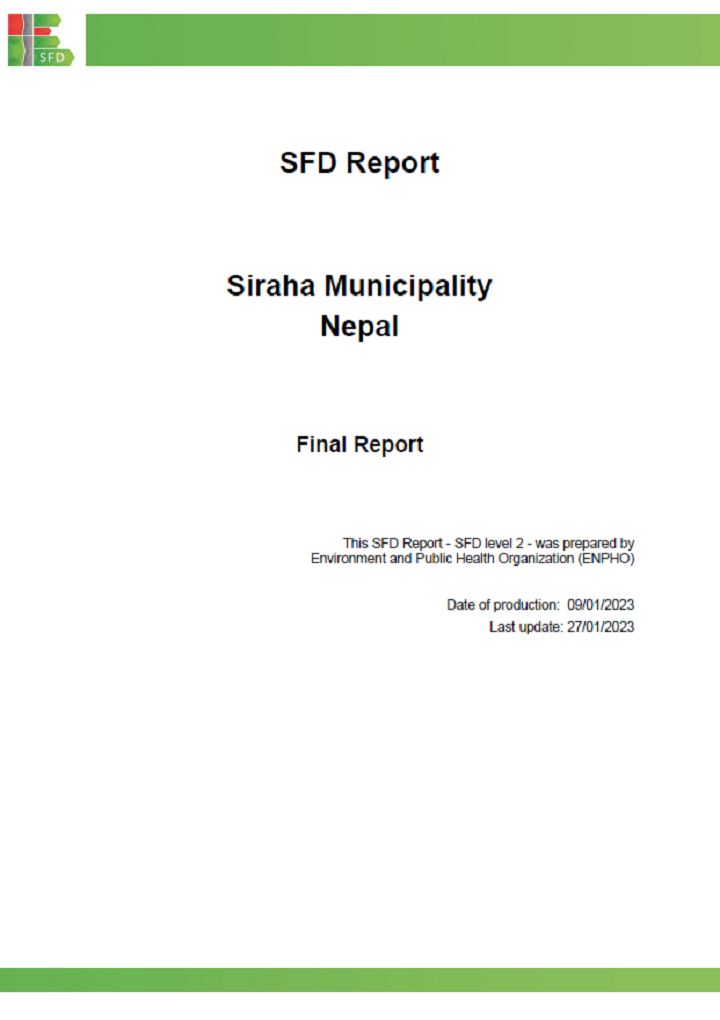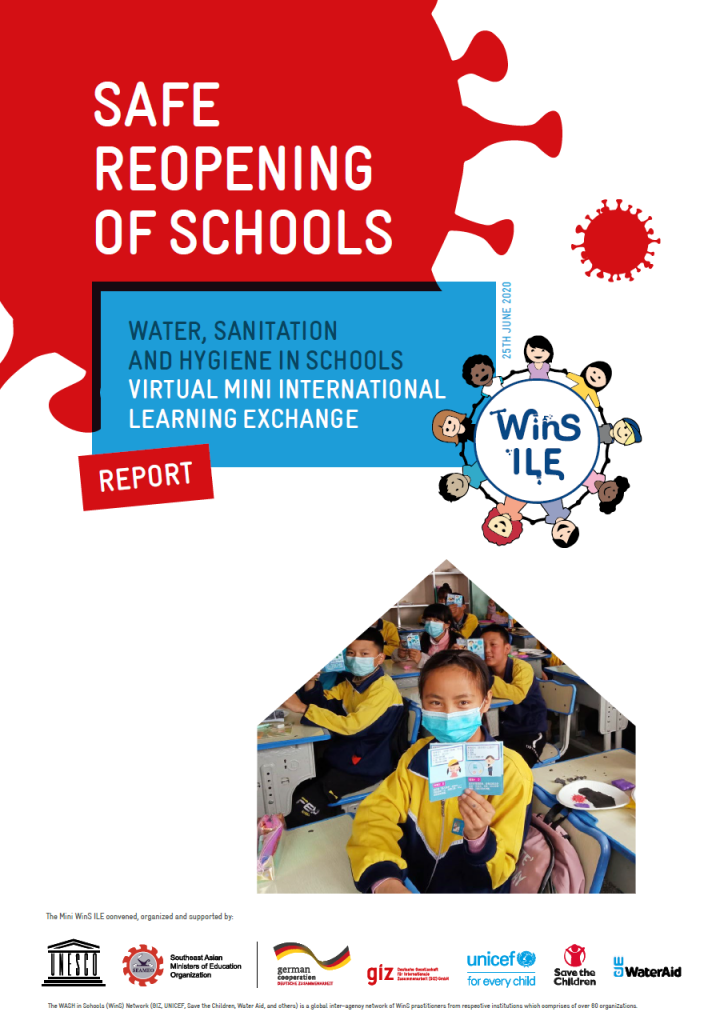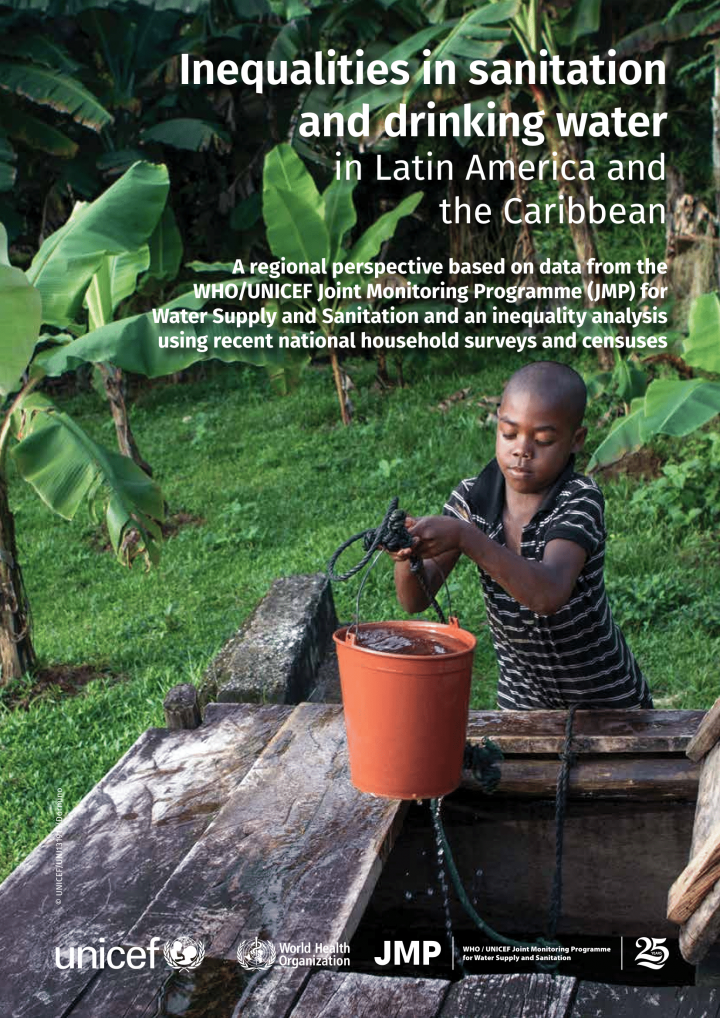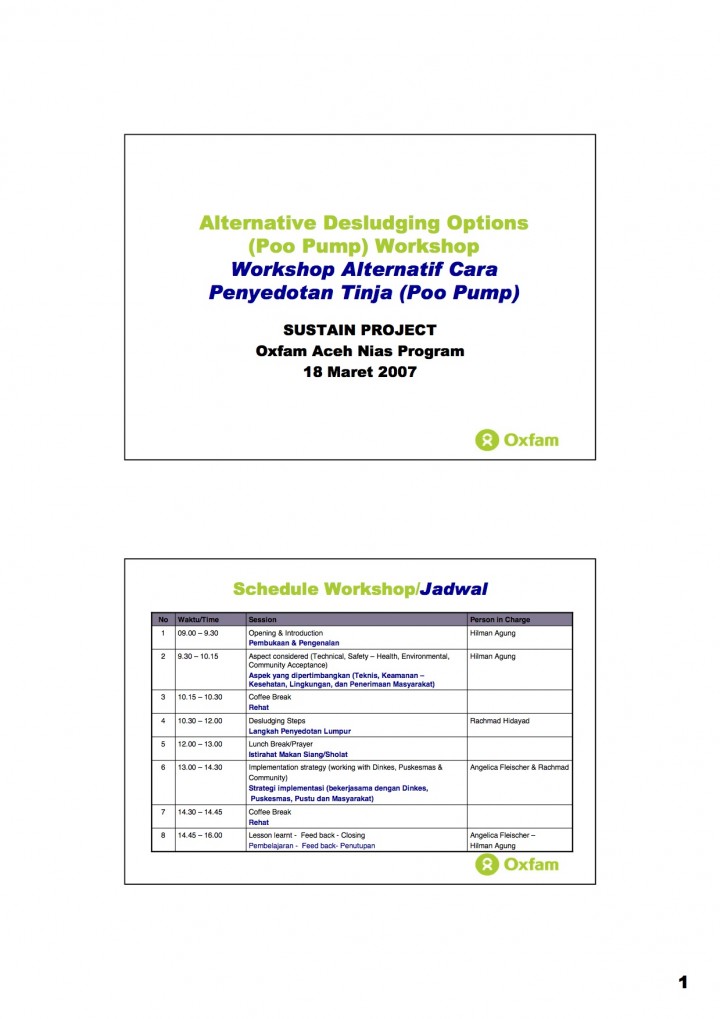Searching for information on Sanitation Workers?
The Sanitation Workers Knowledge + Learning Hub is the best source for all current news, trends, articles and updates on sanitation workers rights around the world.
Janakpurdham Sub-Metropolitan City is situated in Dhanusa District of Madhesh Province in the southern region of Nepal. Formerly, it was established as Janakpur Sub-metropolitan City on 1960. Later on 2014, it was re-named as Janakpurdham and changed the sub-metropolitan city to sub-metropolitan city. It is divided into 25 wards
As per the national population and housing census conducted in …
Worldwide over the last years, a shift has taken place in the acceptance of faecal sludge management (FSM). It is now considered by many to be a viable solution alongside sewer-based systems in achieving citywide inclusive sanitation, and faecal sludge treatment plants (FSTPs) are starting to be constructed throughout Asia and Africa. For example, more than 40 FSTPs started operation in India and …
This second UN-Water GLAAS report presents data received from 74 developing countries, covering all the Millennium Development Goal regions, and from 24 external support agencies, representing approximately 90% of official development assistance for sanitation and drinking-water.
1. Sections 1 and 2 of the report describe the efforts of countries to be accountable and to plan and coordinate …
The previous chapters covered how stabilisation, drying, and pathogen reduction of faecal sludge (FS) can be achieved with different treatment technologies, and combinations of these various technologies. Each treatment technology results in endproducts which need to be further treated, disposed of, or harnessed for some type of resource recovery. Endproducts, for example dried or partially dried …
The Event Report of 2018’s Emergency Environmental Health Forum, which took place in Berlin, summarises all the presentations, keynote speeches, panel discussions and recent key findings from practice and academia. New research and innovations in the sanitation sector were presented and approaches elaborated that aim at bridging knowledge silos between WASH and other humanitarian sectors. The …
Introduction: Participants in exchange visits organized in the early 2000s were mainly men. Involving women too has become a crucial issue – if rural agricultural output is to improve it is important that women can also take part in exchange visits. These experiences will provide them with access to knowledge and information, which will gradually give them greater empowerment. Besides, women …
As of 1994, more than 1 billion people in the world still lacked access to safe drinking water (WHO/WSSCC/ UNICEF, 1996). The problem of unsafe drinking water is recognized to be not an isolated technical problem, but interrelated to the problems of adequate water supply, community education in public hygiene, access to sanitation, and effective and safe disposal of human and animal wastes …
It seems people these days can’t stop talking about periods. From derision by presidential candidates, to taboo-breaking Instagrammers and marathoners, menstruation is no longer in the closet. The Society for Menstrual Cycle Research (SMCR) has been building the evidence base and articulating menstruation’s role in health and well-being for over 40 years. SMCR was the first multidisciplinary …
This field workbook supports the implementation of the interagency (FAO, UNICEF, WHO) “Communication for Behavioural Impact (COMBI): A toolkit for behavioural and social communication in outbreak response”. It is a handheld guide and notebook for applying the WHO COMBI methodology in 7-steps, during an outbreak. It is primarily intended for risk communication, developmental communication and …
Microbial drinking-water quality testing plays an essential role in measures to protect public health. However, such testing remains a significant challenge where resources are limited. With a wide variety of tests available, researchers and practitioners have expressed difficulties in selecting the most appropriate test(s) for a particular budget, application and setting. To assist the selection …
It is well recognised that good communication and participation are prerequisites for successful community engagement in development and humanitarian action. We need more sustained dialogue and meaningful interaction with the people we serve so that they can take informed decisions and play an active or lead role in the aid they receive. So how do we get better at working alongside people …
TNUSSP carried out a geographic information system (GIS) based sanitation mapping of households and establishments in the two town panchayats of PNP and NNP with an aim to primarily understand the nature of containment and on-ground desludging practices to enable more effective planning. It also included the preparation of GIS-linked database of properties (with households and establishments) …
The courses presented at Northlink College are career-orientated to bridge the gap between the workshop and the world of work with the least disruption at the end of the training period. Students who attend the simulated training are expected to wear the required safety attire (Helmet, Safety Shoes and an overall) at all times. The Competency Based Modular Training (CBMT) is the first stage in …
Analysis of the sanitation supply chain and household sanitation demand shows that growth in coverage can be stimulated by making sanitation products and services more available, attractive and affordable while at the same time overcoming the prevalent high-end facility preference.
This manual contains training materials and handouts to enable facilitators to rapidly prepare training for different levels of hygiene promoters.
It can also serve as a resource for self directed learning by both hygiene promoters and others involved in supporting or managing WASH interventions.
Globally, more than a billion people, including up to 10 per cent of all children, are estimated to have a disability. More than 110 million persons with disabilities may be at risk of having poor access to water, sanitation and hygiene (WASH) facilities. Access to WASH provides direct benefits to health, social inclusion and dignity, and is fundamental to achieve human rights and development …
A lack of decent toilets and clean water causes diarrhoeal diseases that, on average, claim the lives of almost 800 children every day – one every two minutes.
The health impacts of poor sanitation trap people in poverty, making it difficult to get an education or to work to support their families.
The State of the World’s Toilets 2017 explores how the lack of decent toilets around the …
Siraha municipality is in southern terai region of Nepal. The municipality was restructured in 2016 by merging former village development committees namely Lagadigadiyani, Laxminiya, Samhaitha, lagadigoth and Hakpara in Siraha Municipality. The municipality is divided into 22 political ward boundaries.
The total population of the municipality is 96,543 as per the preliminary report of census …
The COVID-19 pandemic has impacted our lives since early 2020. Children suffer especially under the outbreak, as it is estimated that, globally, over one billion school children are staying home (as at June 2020) with a high number of children not continuing their education online. Nevertheless, the COVID-19 outbreak has been addressed and controlled in some countries, and gradually workplaces, …

